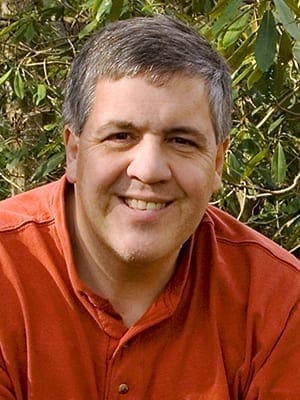Deadly wildfires are in the news again.
In central Portugal, a large forest fire claimed more than 60 lives before it was contained.
At first, the fire was thought to originate with a lightning strike, but a BBC report indicates that a “criminal hand” might have actually caused the massive fire.
We know from history that it doesn’t take much to start a giant forest fire. A single match or a carelessly discarded cigarette can start a blaze that takes lives, destroys homes, kills wildlife and devastates a forest. That is why we must be very careful when handling such objects.
I thought of the Portugal fire as I was studying the third chapter of the book of James recently.
In this section, James talks about the deadly potential of the tongue. He notes that though the tongue is small, it has a way of directing or controlling our lives.
James compares the tongue to a bit that controls a large horse and to a relatively small rudder that directs a giant ship.
Then he says, “Consider what a great forest is set on fire by a small spark. The tongue also is a fire, a world of evil among the parts of the body” (James 3:5-6).
The graphic images that are being shown of the forest fire in Portugal are not only a reminder of the dangers of fire, they are also powerful reminders of the dangers of the tongue.
The words we use can, like fire, be deadly. They can hurt people and destroy lives.
As a child, I remember learning the rhyme, “Sticks and stones may break my bones, but words can never hurt me.”
Whoever came up with this saying was woefully misguided. Careless and harmful words can cause wounds that hurt worse and last longer than those caused by sticks or stone. Most of us can bear witness to that.
James declares, “All kinds of animals, birds, reptiles and creatures of the sea are being tamed and have been tamed by man, but no man can tame the tongue. It is a restless evil, full of deadly poison” (James 3:7-8).
This is a sad commentary on our state, but who could deny that it is accurate?
Perhaps we’ll never be able to fully tame the tongue but surely we can do better than we have. I certainly hope so.
In so many arenas, our language has become caustic and vitriolic. People get hurt every day.
Obviously, I cannot control what others say, but I do have some control over what I say. So do you.
Let us, therefore, choose to speak words that encourage, help, comfort and heal, not words that hurt, discourage and tear down others.
Long ago, the psalmist offered this prayer: “Set a guard over my mouth, O Lord; keep watch over the door of my lips. Let not my heart be drawn to what is evil” (Psalm 141:3-4).
If we would be willing to offer this prayer at the beginning of each day, I can’t help but believe it would go a long way in eliminating many needless and harmful words.
Smokey the Bear used to say, “Only you can prevent forest fires.”
James would have us understand that same thing holds true for the verbal ones.
Chuck Summers is a pastor of the First Christian Church (Disciples of Christ) in Henderson, Kentucky. He is also a photographer whose work has appeared in numerous national magazines and calendars; he has published three photography books. A version of this article first appeared on Seeing Creation, a blog that Summers co-authors with Rob Sheppard, and is used with permission.
Chuck Summers is a pastor of the First Christian Church (Disciples of Christ) in Henderson, Kentucky.

